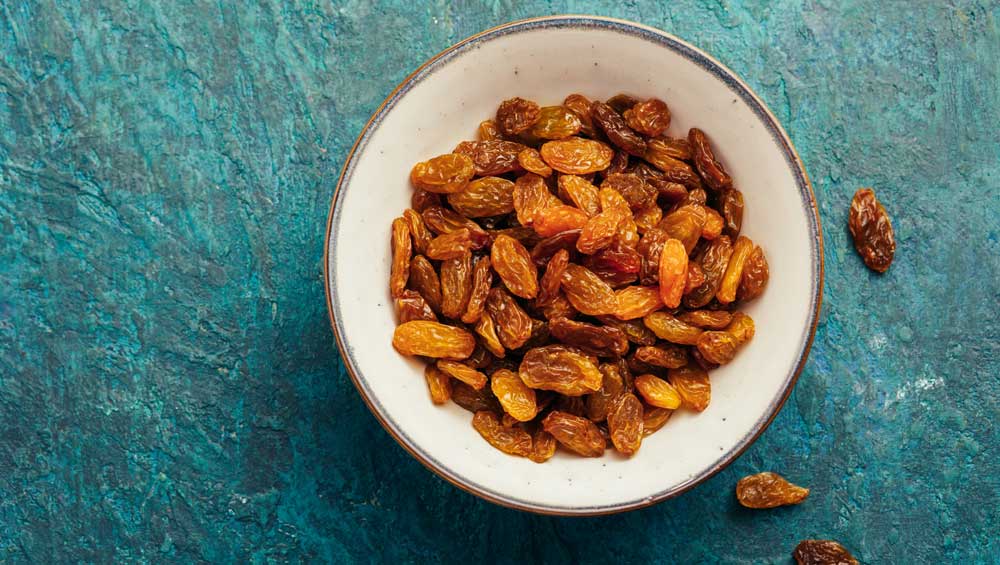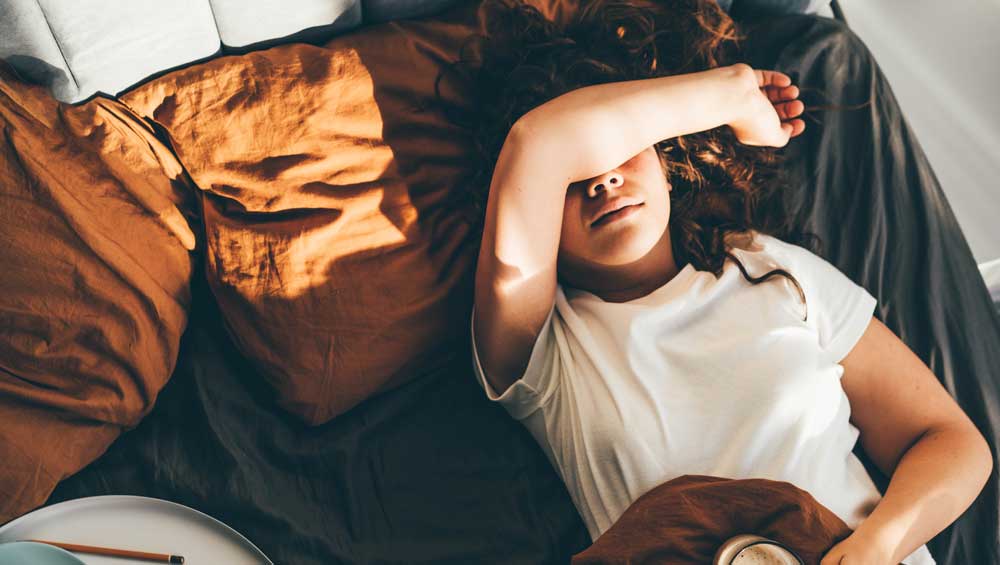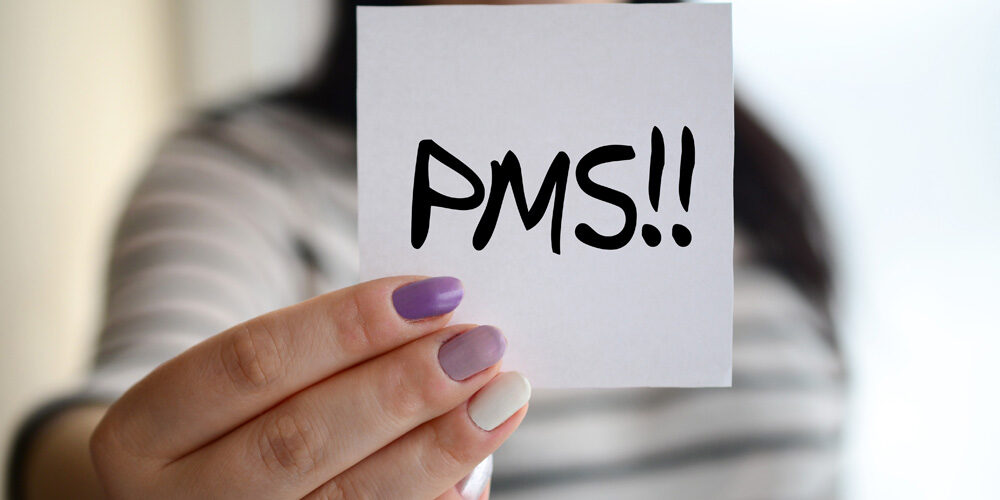No products in the cart.
Lifestyle Modifications To Relieve Severe PMS Symptoms
Ayurveda, an ancient medical practice, is said to be extremely beneficial in reducing and even eliminating PMS. PMS, or premenstrual syndrome, is quite common among most menstruating women, with at least one or two symptoms occurring about a week before their period begins. PMS symptoms include mood swings, fatigue, irritability, food cravings, and severe cramping. The severity of symptoms affects some women’s daily activities and causes great discomfort. Many women affected by it are turning to complementary and alternative medicine to help them cope with the severe symptoms. Ayurveda, an ancient medicinal practice, is extremely beneficial in reducing and eliminating PMS. Ayurveda aids in the balancing of the doshas, which causes the symptoms. PMS symptoms could be caused by a nutrient deficiency, inflammation, or an oestrogen /progesterone imbalance. PMS can be managed to a large extent by reducing stress, making dietary changes, and including exercise in your daily routine.
Almost all women experience some form of premenstrual syndrome in the week or two preceding their period. However, in approximately 40% of women, the symptoms are severe enough to warrant a diagnosis of Premenstrual Syndrome or Premenstrual Dysphoria Disorder.
PMS/PMDD can be treated in a variety of ways. The type of treatment appropriate for you is determined by the severity of your symptoms. If you only have mild PMS, you may be able to feel better by changing your lifestyle, but if you have severe PMS or PMDD, you may require additional medications or treatments.
It is thought to be caused by changes in hormone and neurotransmitter levels (chemicals in the brain). Mood swings, tender breasts, bloating, and food cravings are some of the symptoms. The syndrome may not necessitate medical treatment; instead, a few lifestyle changes may be all that is required to cope with the syndrome. To treat the physical symptoms, pain relievers and other medications may be used.
The syndrome may not necessitate medical treatment; instead, a few lifestyle changes may be all that is required to cope with the syndrome. To treat the physical symptoms, pain relievers and other medications may be used.
1. Serve with Raisins and Almonds

Take five soaked raisins and four soaked almonds first thing in the morning every day.
2. Cycle of seeds
1 tsp flax and pumpkin seeds for the first two weeks of periods, and 1 tsp sunflower and sesame seeds for the last two weeks of the menstrual cycle
3. Consume sweet fruits as well as healthy fats
Sweet fruits are naturally cold and grounding, and healthy fats like cow ghee, olive oil, and fats from nuts and seeds keep your metabolism running smoothly and your hormones balanced.
4. Engage in meditation and pranayama exercises

Spend 30 minutes a day doing breathing work or meditation for yourself. It is the most effective way to reduce cortisol (the stress hormone) that causes PMS.
5. Maintain a physically active lifestyle
Engage in 40 minutes of movement every day, either in the morning or before 6 p.m. You can walk, jog, run, cycle, go to the gym, dance, or do whatever you want.
6. Consume coriander water once a day
Coriander has a calming effect on the body. It calms your gut, which produces 75 per cent of your hormones.
Also Read: Understanding Diabetes from the Ayurvedic and Allopathic Perspective
7. Practice Nasya before going to bed
It is ideal for resting your nervous system and ensuring that you sleep well and wake up feeling energized and positive.
8. Go to bed early (best by 10 pm)
Sound sleep is the simplest way to improve hormonal balance, metabolism, and immunity. Sleeping on time every day allows your body to rest and rejuvenate, which aids in the maintenance of homeostasis.
9. Dietary Anti-Inflammatory Supplements
One of the major factors in hormone balance and PMS symptoms is diet. Following an anti-inflammatory diet can be one of the biggest steps to freeing yourself from harsh PMS symptoms.
For example, an anti-inflammatory diet should be full of leafy greens and antioxidant-rich vegetables which contain lots of magnesium and calcium to ease menstrual cramps. Also, things like wild-caught salmon can help lower inflammation and pain due to their high omega-3 content.
Furthermore, you should avoid things like sugar, a lot of salt, and caffeine, as these can aggravate your symptoms. Caffeine, in particular, can dehydrate you and aggravate digestive issues that are common during PMS.
10. Adequate Sun Exposure

After taking care of your diet, it’s critical to get outside and get some sunlight regularly. Sunlight helps us produce vitamin D, essential for hormone balance and calcium utilization. These actions will aid in lowering oestrogen levels and relieving cramping.
Another significant advantage of vitamin D is that it reduces the production of prostaglandins and cytokines, which are chemicals in the body associated with inflammation and pain. If you are suffering from any type of body pain you can use Cinnta Pain Relief Oil by Teachers Grace.
11. Enhance your Sleep
Studies have shown how the hormonal changes that occur during PMS can cause PMS-induced insomnia. But did you know that taking extra steps to improve your sleep may also help with your PMS symptoms?
Getting enough sleep is essential for reducing inflammation, controlling cortisol levels, and balancing hormones. So, by getting a good night’s sleep regularly, you can help reduce PMS symptoms in various ways.
Options for First-Line Treatment: –
All women can benefit from the following recommendations, but women with PMS/PMDD should make the following basic lifestyle changes:
- Reduce your alcohol consumption.
- Reduce your caffeine consumption.
- Reduce your intake of high glycemic carbohydrate foods (white bread, white rice, pasta, sweets)
- Consume complex carbohydrates with a low glycemic index (whole grains, brown rice, wheat pasta, fruit)
- Daily physical activity

If lifestyle changes do not relieve your symptoms, you may consider other treatment options before consulting with your healthcare provider about pharmacologic therapy.


